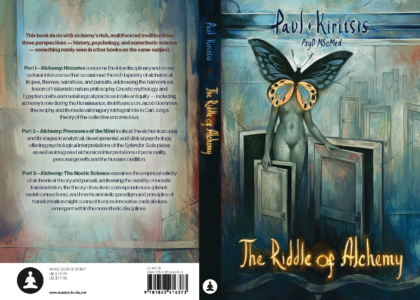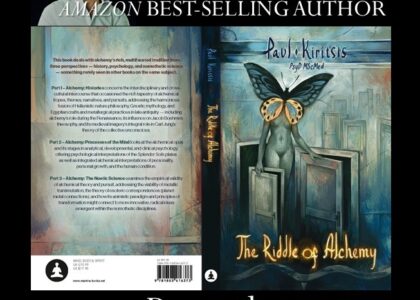
There
are various techniques we can utilize to dispel fear from the depths of our
being. One group is psychological in nature, the other spiritual. Some
circumstances will require that only one of the two methods is appropriated and
others will require a combination of the two. While the second group is by far
the most far-reaching and effective method of fear exoneration in the long-term,
the short-term effects of the first are instant and advantageous enough as to
offer the individual the luxury of absconding into an inner ‘panic room’ whilst
alternative coping strategies are premeditated and put into action.
Psychological Methods
1. The
first method expunging fear is through self-reflection and serious
contemplation. A natural by-product of psychospiritual evolution is the perspicacity
that the throne of the intellect must not be usurped by the emotions. Early in
our development we are convinced that the mind is subservient to the emotions.
As we begin to self-actualize this perception is modified to accommodate a psychic
dualism where the mind and the emotions are co-habitants of the psyche, equal
halves with neither retaining authority over the other. Under this particular
spell we are convinced that the mind cannot encroach upon or dominate the expression
of emotions and vice versa. Further in our inner growth, we are finally struck
by the realization that the mind does have supremacy over the emotions and can
transform them in a most positive, constructive manner.
2. The
second method is classical Freudian psychoanalysis. Through free association
and other psychotherapeutic methods we penetrate the unconscious and bring
latent content associated with phobias into awareness.
3. The
third method involves the rechanneling or transposition of nervous energy into
constructive physical activities like sport and community service. Naturally,
Jung’s active imagination comes in
handy here; taking the phobia and dialoguing with it until it transforms into a
much less threatening sentiment. Another method of transposing nervous energy
is through laughter and humour which produces endorphins in the brain and genuine
feelings of beneficence and goodwill. It is possible to laugh your way to
wellness and better health in the most literal sense. Finally, it helps to
surround yourself with people who reverberate with positive, dynamic feelings like
audacity, cheerfulness, fortitude, and mental strength.
4. The fourth and final method involves
psychagogic exercises like autosuggestions and reaffirmations aimed at lifting
the morale of the individual. In fact, contemporary spirituality promulgates
these specialized techniques which rearrange some of the deeper unconscious layers
of the personality in which personal belief systems and biases subsist, effecting
desirable changes to conscious behavioural patterns that change the trajectory
of the individual’s life for the better. Cognitive-behavioural therapy is also
beneficial; by gradually exposing the individual to the dreaded and
anxiety-provoking stimulus, the individual comes to understand that he or she
is stronger than the latter, thus reducing its efficacy to elicit a negative
reaction. This is a form of programming, or reprogramming to be exact.
Spiritual Methods
The
spiritual perspective proceeds from a cosmological humus proclaiming that fears
spring from general misperceptions and ignorance that include:
1. The
instinct of self-preservation, stemming from the conviction that death is a
termination of self-consciousness and that there is nothing beyond it.
Naturally, esoteric spirituality holds that embodiment is transitory, merely a formative
phase in the evolution of our souls, and that beyond it lies an eternity of
ethereal freedom.
2. The dismantling terror of abandonment and
isolation. The best way of overcoming these mental hurdles is by
self-cultivation through prayer and meditation, and by redirecting attention
away from oneself and onto collective communal motives and interests. People
reflect their inner condition; one at peace with oneself and with the cosmos
will instinctively draw more individuals whilst one at war within oneself will
repel them. In any case the interconnectedness and communion of all beings in
the cosmos dispels the illusion of separation; we are all connected.
3. Extremely
low levels of self-worth, self-esteem, and inferiority complexes manifest in
attitudes and behaviours that result in severe social isolation and in many
cases disenfranchisement. We are all equal albeit unique creations of the
primordial Godhead; the sooner one realizes this the quicker he or she can
begin reengaging with fellow human beings and reintegrating into society.
4. Fears
of tragedies and misfortunes that may materialize in the future. The best way
to surmount them is to understand that most are irrational creations of the
hyperactive imagination and never come to pass. Further, we may be assisted in
our quest by affirming to ourselves the axiom, “God never inflicts personal difficulties
and tragedies beyond our ability to surmount them.” We are powerful beyond all
imagining; we actually underestimate our ability to transcend misfortune and
calamity and end up selling ourselves short in the process. An intuitive
understanding of this fact is a prevailing characteristic of wise, self-actualized,
and enlightened individuals. Only through the intuitive perception and practice
of cosmic intimacy, unanimity, and mutuality does consciousness expand and
swallow up the destructive psychic emanations of fear; feeding joy and personal
freedom is tantamount to a deflation of anxiety and phobias surrounding the unknown
and the future. At this point one would do well to remember the Cherokee legend
of the two wolves:
“One evening an old Cherokee told his grandson about
a battle that goes on inside people. He said, “My son, the battle is between two wolves inside us all. One is Evil–it
is anger, envy, jealousy, sorrow, regret, greed, arrogance, self-pity, guilt,
resentment, inferiority, lies, false pride, superiority, and ego. The other is
Good–it is joy, peace, love, hope, serenity, humility, kindness, benevolence, empathy,
generosity, truth, compassion, and faith.”
The grandson thought about it for a minute and then asked his grandfather: “Which wolf wins?”
The old Cherokee simply replied, “The one you feed.”









